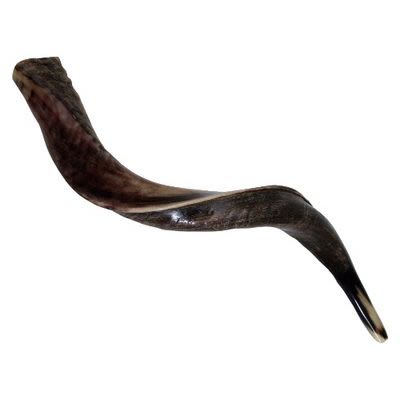
Re’eh: You Never Lose From a Mitzva
Someone may think: “Okay, so I’ll start a new business. I’ll avoid horticulture and turn to financial instruments to make a living...

The Remission of Loans
Just as the Torah ordains that during the seventh year, produce grown in Eretz Yisrael are free for the taking (Vayikra 25:5-7), so does the Torah ordain that loans are cancelled at “the end of seven years” – the shmittah year.
“At the end of seven years you shall institute a shmittah. This is the matter of the shmittah: Every creditor shall remit his authority over what he has lent his fellow; he shall not press his fellow or his brother, for He has proclaimed a shmittah for Hashem. You may press the gentile; but over what you have with your brother, you shall remit your authority” (Devarim 15:1-3).
That the shmittah does not apply to gentiles indicates that the shmittah is an act of kindness that the Torah commands us to extend to fellow Jews, for if it were a dishonest act to collect such debts, it would be forbidden to do so from gentiles, as well.
The Torah continues (Ibid. 5): “However, may there be no destitute among you; rather Hashem will surely bless you in the Land that Hashem, your God, will give you as an inheritance, to possess it.”
The Torah commands us in the matter of shmittah, and then leaps to a promise that there will be no poor among us. Why does the Torah connect these two concepts?
The Shidduch
The Chofetz Chaim explains this relationship by means of a parable. Reuven and Shimon were fortunate to make a match (shidduch) between their son and daughter. Reuven promised to give a thousand gold pieces for his son's dowry, and Shimon agreed on the same amount for his daughter's dowry. They stipulated that on the first of Adar they would deposit the dowry money by third party.
A few days before the agreed upon date they happened to meet. Reuven said to Shimon: “It seems to me that you’re not interested in the shidduch anymore!”
“What makes you think that?” asked Shimon.
“Well, it seems as if you aren’t planning to deposit the dowry. You invested everything into a new business. That’s a clear sign you aren’t planning to continue with the shidduch,” replied Reuven.
“God forbid!” exclaimed Shimon. “I have absolutely no intention of canceling the shidduch. Come with me and I’ll show you the thousand gold pieces ready and waiting for deposit.”
“Actually,” Shimon continued, hesitantly, “I’m a bit afraid you’re intending to cancel the shidduch, or else why would you accuse me like that? And the proof is, I happen to know that you’re the one who put all your money into a new business and you won’t have the amount we agreed upon!”
The Chofetz Chaim explains the parable: The Torah gave us many commandments concerning tithes and charity. In the section before the verses quoted above, we were commanded to give the second tithe (maaser sheni, which is 10% of the crops): “You shall tithe the entire crop of your planting, the produce of the field, year by year” (Devarim 14:22).
If someone has failed to distribute any of his tithes during the three-year cycle, the Torah commands him distribute all of the tithes. He must distribute them to their proper recipients by Pesach of the fourth year: “At the end of three years you shall take out every tithe of your crop in that year and set it down within your cities. Then the Levite can come… and the proselyte, the orphan, and the widow who are in your cities, so they may eat and be satisfied” (Ibid. 28-29).
In all, the farmer is obligated to designate over 20% of his crops for charity: The tithe for the Kohen (trumah), the first tithe for the Levites and the second tithe for the poor (Ibid. 22- 27).
Next, the Torah reminds us of the mitzvah of shmittah: “At the end of seven years you shall institute a shmittah” (Ibid. 15:1), during which the farmer is commanded to leave his fields and orchards free for the taking and he may not do any agricultural work.
It turns out that the Torah obligates the grower to give away more than a third of his agricultural profits!
Someone may think: “Okay, so I’ll start a new business. I’ll avoid horticulture and turn to financial instruments to make a living. I’ll be a banker and give loans.” In response to this, the Torah continues: “This is the matter of the shmittah: Every creditor shall remit his authority over what he has lent his fellow; he shall not press his fellow or his brother” (Ibid. 2).
Returning to the parable, someone might turn to his “mechutan” – the one with whom he has entered the agreement to marry his son to his daughter – with the claim that the “mechutan” – i.e. the Merciful One in His Torah –wants to break off the shidduch.
A person may complain that through fulfilling these mitzvot he will not be able to survive! Wherever he turns, whether to agricultural or financial enterprises, he has to separate the tithes and make a shmittah of the land or the loans. It seems as though he has to give everything away! How can he be expected to make a ‘good living?’
He entertains the idea that he has to give up his obligation of a ‘thousand gold pieces,’ his share in making the “shidduch” with Hashem, which is the obligation to support unfortunate ones with charitable contributions.
The Cause of Poverty
Therefore, the Torah follows the command of shmittah with the verse (Ibid. 5): “However, may there be no destitute among you; rather Hashem will surely bless you in the Land that Hashem, your God, will give you as an inheritance, to possess it.”
The Torah hints that destitution could be among you, literally “becha” – caused by you!
The Sages taught: “There are four reasons that homeowners lose all their possessions: They do not pay workers on time (Rashi—they push them away with excuses); they oppress workers monetarily (they do not pay them at all); they remove the yoke of responsibility from their necks and place it on their fellow; and because of arrogance (due to their wealth)” (Succah 29b, with Rashi).
Someone could be the cause of his own doom. Therefore the Torah cautions us to beware not to bring about destitution. We must be kind to the unfortunate and those who rely on us. We cannot evade our responsibility! We have to trust in Hashem that He will always give us sufficient livelihood for our needs, and that we will never lose by doing His will.
Thus we can open our hand to charity, trusting that our “mechutan” will also keep His end of the deal: “Hashem will surely bless you in the Land that Hashem, your God, will give you as an inheritance, to possess it” (Ibid. 5). (Mishlei HaChofetz Chaim 38).
Even More
In fact, not only will we never lose from the tithes, the Torah promises even more. In regards to the tithes it is written: “You shall tithe the entire crop of your planting, the produce of the field, year by year” (Devarim 14:22).
Midrash Tanchuma comments that the second part of the compound verb: “aseir taaseir, you shall tithe” (Ibid.) can be read: “taasheir, you will become rich.” Thus, the Torah teaches that if you give tithes, you will become rich, in complete contradiction to those who claim they cannot contribute to charity because they are afraid of becoming poor.
This same concept – that tithing increases wealth and does not decrease it – is found elsewhere in the Tanach. God says: “Bring the tithe into the storehouse… and test Me now with this, if I will not open for you the windows of heaven and pour out a blessing upon you” (Malachi 3:10).
Today we do not have the mitzvah to give the agricultural tithes; therefore, the custom is to give 10% (or more, up to 20%) of our income to charity. May we always be fortunate to have the capacity to give generously, and may we always conduct our affairs with an open hand. In this way we allow our “Mechutan” to keep His end of the agreement: “Hashem will surely bless you in the Land that Hashem, your God, will give you as an inheritance, to possess it” (Devarim 15:5).











Tell us what you think!
Thank you for your comment!
It will be published after approval by the Editor.